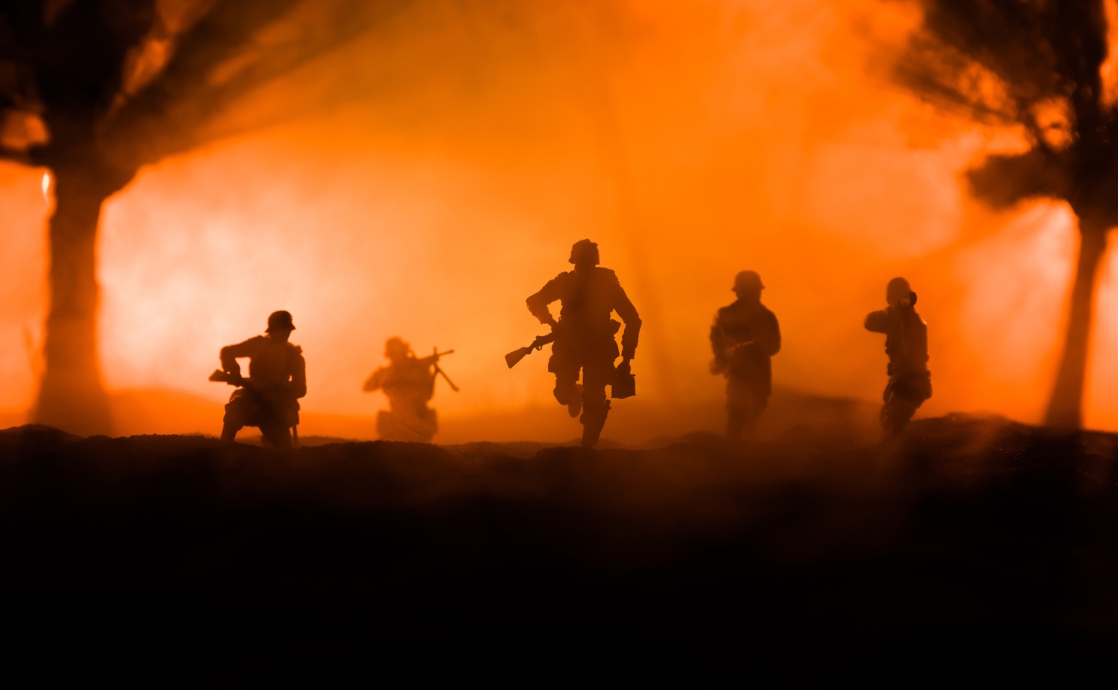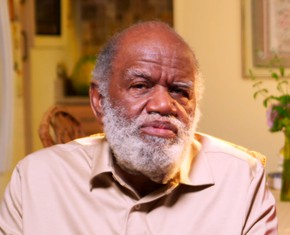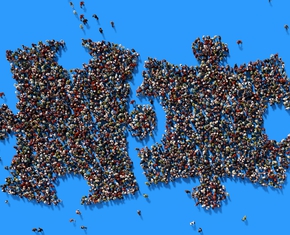The views expressed in our content reflect individual perspectives and do not represent the authoritative views of the Baha'i Faith.
The Baha’i teachings call on the kings and rulers of the world to outlaw war. Baha’u’llah, the prophet and founder of the Baha’i Faith, suffered in prison and exile for forty years so:
… that conflict and aggression might be put to flight, the lance and the keen blade be exchanged for loving fellowship, malevolence and war turn into safety and gentleness and love, that battlefields of hate and wrath should become gardens of delight, and places where once the blood-drenched armies clashed, be fragrant pleasure grounds; that warfare should be seen as shame, and the resort to arms, even as a loathsome sickness, be shunned by every people; that universal peace raise its pavilions on the loftiest mounts, and war be made to perish forever from the earth.
This historically new call to outlaw war itself – to make war a crime against humanity – began in Baha’u’llah’s time. Our ancestors, at least the ones who lived before the advent of the Baha’i Faith, would have been astounded by the idea that war has rules, or that waging it qualifies as a crime.
RELATED: What’s the Difference Between a War Crime and Genocide?
In earlier times, war was seen as the only way to resolve intractable disputes or to take territory, giving kings and rulers unlimited authority to declare and wage war.
The generally-accepted past doctrine of the “divine right of kings,” which held that monarchs are not responsible to earthly authority, prevented rulers from being held accountable for the wars they started for thousands of years prior to the 19th century.
But that has now changed – radically.
What Is a War Crime?
The modern framework for assessing war crimes, born out of the Russian scholar Aron Trainin’s jurisprudence and the Nuremberg trials after World War II, attempted to establish rules that would minimize the horrors of war. Despite those nascent efforts, the world has not yet found reliable or consistent ways to hold individual rulers responsible. We have attempted, as a global community, to regulate and rectify war’s inherent brutality, but so far we have largely failed.
So when the term “war crimes” gets used, few people understand its precise legal definitions, spelled out explicitly in international treaties like the Geneva Conventions of 1949 and the Rome Statute, which established the International Criminal Court in 2002.
In general, international law today defines war crimes as the deliberate, disproportionate targeting of civilians on a mass scale; the use of weapons of mass destruction such as chemical and biological agents; and intentional attacks on civilian sites like schools, hospitals, or cultural and historic monuments.
International law also defines the separate category of crimes against humanity as enslavement, torture, and mass murder.
All of these differ from the definition of the word “genocide,” a term first coined in 1944 by the Polish human rights lawyer Raphael Lemkin. Using the new premise he derived from the Greek prefix genos, meaning race or tribe; and the Latin suffix cide, meaning killing, Lemkin led a successful campaign after World War II to have genocide recognized and codified as an international crime – which ultimately happened in the 1948 Convention on the Prevention and Punishment of the Crime of Genocide. That international treaty defines genocide as “acts committed with intent to destroy, in whole or in part, a national, ethnical, racial or religious group …”
Atrocities, War Crimes, or Genocide – Which One Applies to Modern Warfare?
Every war includes countless incidents of terror, tragedy, and trauma that do not fall under the narrow legal definitions of atrocities, war crimes, or genocide. That’s the problem.
For example: in the past few weeks, we’ve all seen photographs of obviously executed people, their bodies laying in Ukrainian streets. Are these war crimes under international law? The legal answer is probably yes, if they are committed against innocent civilians – but maybe not, if those civilians became combatants by possessing or using weapons like Molotov cocktails, for instance. Combatants in war, whether military or civilian, can still be killed with impunity.
That impunity, unfortunately, also practically extends to the rulers of aggressor countries that declare and wage war. In actuality, national leaders who never leave their own country need not fear the International Criminal Court (ICC) or the widely-accepted laws that determine atrocities, war crimes, or genocide. The ICC has no enforceable authority or power over national leaders if it cannot arrest and detain them. Even with reams of hard evidence, including photographs, video, satellite imagery, eyewitness testimony, and sworn affidavits, putting any of those national rulers on trial by international prosecutors will not likely happen, unless their governments change in the interim.
As a result, only a relatively small – but growing – number of defendants have ever faced an actual war crimes tribunal, whether international or domestic. The list of disgraced and now convicted former national leaders includes Argentine de facto president general Jorge Videla; Serbian president Slobodan Milosevic; Rwandan Prime Minister Jean Kambanda; Liberian president Charles Taylor; Iraqi president Saddam Hussein; Cambodian Khmer Rouge leaders Nuon Chea and Khieu Samphan; Peruvian president Alberto Fujimori; and Guatemalan president Efrain Rios Montt; among others. (The Council on Foreign Relations has summaries here.)
So the world still has some significant further progress to make before humanity develops a viable, effective international mechanism for prohibiting and punishing armed aggression and warfare.
RELATED: But What About the Violence in Religion?
However, the Baha’i vision of a global peace backed by an international tribunal – what Shoghi Effendi, the Guardian of the Baha’i Faith, called “a world commonwealth” – is slowly and visibly beginning to appear as the force of international laws against war crimes and genocide are increasingly applied and enforced. Shoghi Effendi defined what a functioning world commonwealth could include:
This commonwealth must, as far as we can visualize it, consist of a world legislature, whose members will, as the trustees of the whole of mankind, ultimately control the entire resources of all the component nations, and will enact such laws as shall be required to regulate the life, satisfy the needs and adjust the relationships of all races and peoples. A world executive, backed by an international Force, will carry out the decisions arrived at, and apply the laws enacted by, this world legislature, and will safeguard the organic unity of the whole commonwealth. A world tribunal will adjudicate and deliver its compulsory and final verdict in all and any disputes that may arise between the various elements constituting this universal system.
If you want to end war and outlaw it forever, like so many other peace-loving people in today’s world, please join with the global community of the Baha’is working for the realization of this powerful vision.
















Comments
Sign in or create an account
Continue with Googleor